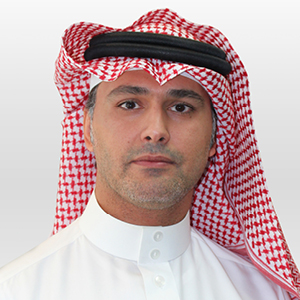Industry Thought Leadership
Regulatory Frameworks for IoT: Opportunities and Challenges
September, 2019ITU defines internet of things as “a global infrastructure for the information society, enabling advanced services by interconnecting (physical and virtual) things based on existing and evolving interoperable information and communication technologies”. It began with the adoption of wired M2M technology in “SCADA” (supervisory control and data acquisition) in utility companies and became wireless in the 1990s, after the availability of wireless technology and its inherent advantages. IOT is the next step in the M2M evolution, which involves, in most cases, IP communication, active internet connection and data delivery relayed through a middle layer, hosted in cloud. Hence, while M2M may refer to any isolated device-to-device connectivity, IOT is about larger scale synergized communication between multiple devices with different protocols, to achieve complex objectives. Therefore, while conventional vehicle tracking would be categorized as M2M, autonomous vehicles would fall under the IOT services. Technologists have been dreaming about the futuristic applications of M2M for a long time. However, the required speed, latency etc. were not possible until now. This is about to change with the impending launch of 5G services, in most countries.
IOT has become a hot topic nowadays, due to the almost ubiquitous availability of wireless connectivity, widespread adoption of IP technology, advancement in data analytics and the rise of cloud computing. The imminent launch of 5G services is also a very important reason behind the heightened interest in IOT. 5G is expected to finally, provide the level of speed, latency and security which will potentially enable the provision of services like autonomous vehicles, smart homes and wearable for various health and other applications, to name a few.
IOT is expected to be a multibillion-dollar industry in the GCC. A report published by the Kuwait Financial Centre “Markaz” estimates only, the cost savings in oil and aviation industries to reach around 20Bn USD. Many countries in the region are working towards the diversification of their economies, strengthening of private sectors and the development of knowledge economy. IOT, big data and 5G therefore, occupy an important position in the national policies of these countries. Consequently, many GCC countries are working to establish a strong ITO industry. For example, Du (UAE) showcased it’s smart city solutions at IoT Middle East 2019 Conference. Etisalat launched its IoT (Internet of Things) gateway solution to connect customers’ remote organisational assets securely to the enterprise network in 2018.
In KSA, IoT is estimated to become a USD 16.01 billion market by 2020. Hence, Saudi government has paid special attention to it in the vision 2030. MCIT has established Saudi IoT, an annual event focusing on the growth and development of technology in the Kingdom of Saudi Arabia. It is a once a year event for customers, service providers and technologists. Saudi’s Regulator (CITC) is working on the development of regulations and has already issued its “Rules and Conditions for MVNO Services and IOT-VNO Services Provision”. A consultation paper has also been issued about draft Regulatory Framework on Internet of Things (IoT) and draft special conditions for class licenses Type (B) to provide Internet of Things (IoT) Services using license-exempt frequency.
Saudi Operators are gearing up to enter this lucrative market. At present, Mobily offers POS, fleet management and other M2M services.
More advanced IOT services are expected to be launched after the availability of 5G services in the countries. Operators have already started negotiating with local and international partners to launch such services.
We believe that the first service propositions will be focused on SCADA type applications for utility companies with E-health and smart vehicle type services following them. More advanced services like autonomous vehicles etc. are not expected before a widespread penetration of 5G. There will be a lot of potential of revenue generation in oil and gas sector and operators will face fierce competition in this vertical.
Saudi operators will have to overcome several challenges for establishment of a thriving IOT market. Most important of these challenges could be regulatory ambiguity, entrance of established big players from abroad and lack of technological now how in the local market. At the same time, national complicated security requirements will also create some hurdles. Operators should start developing technical capabilities and alliances while working with Regulator and other government bodies to facilitate rules and regulations related with IOT.

